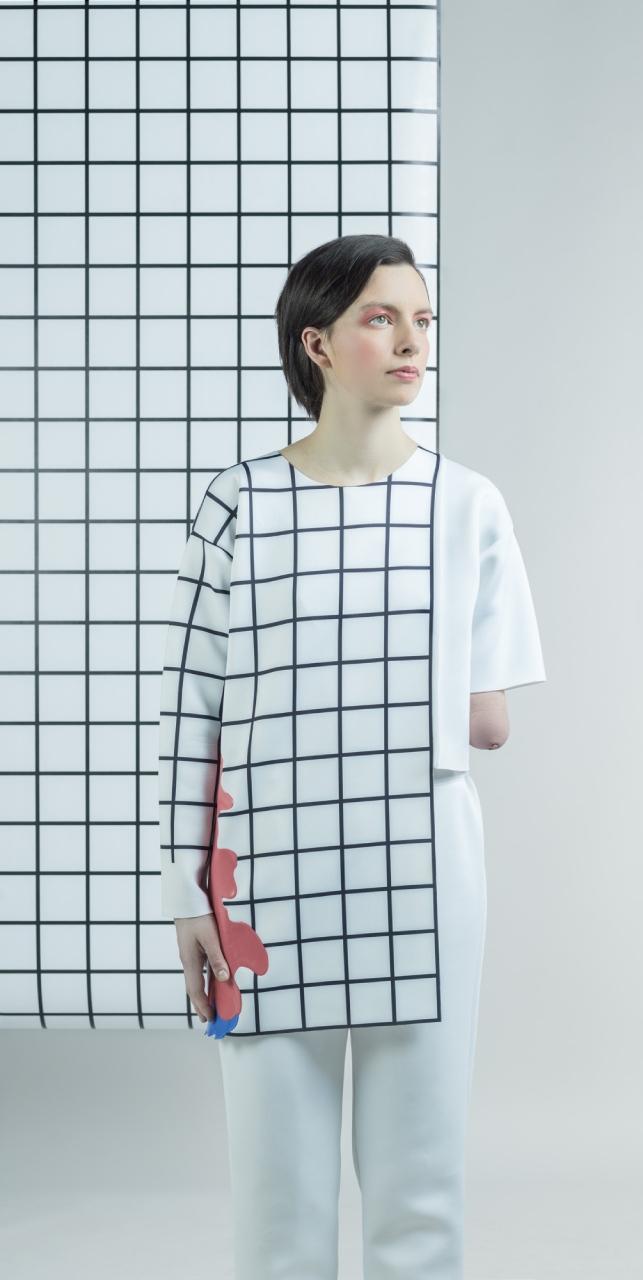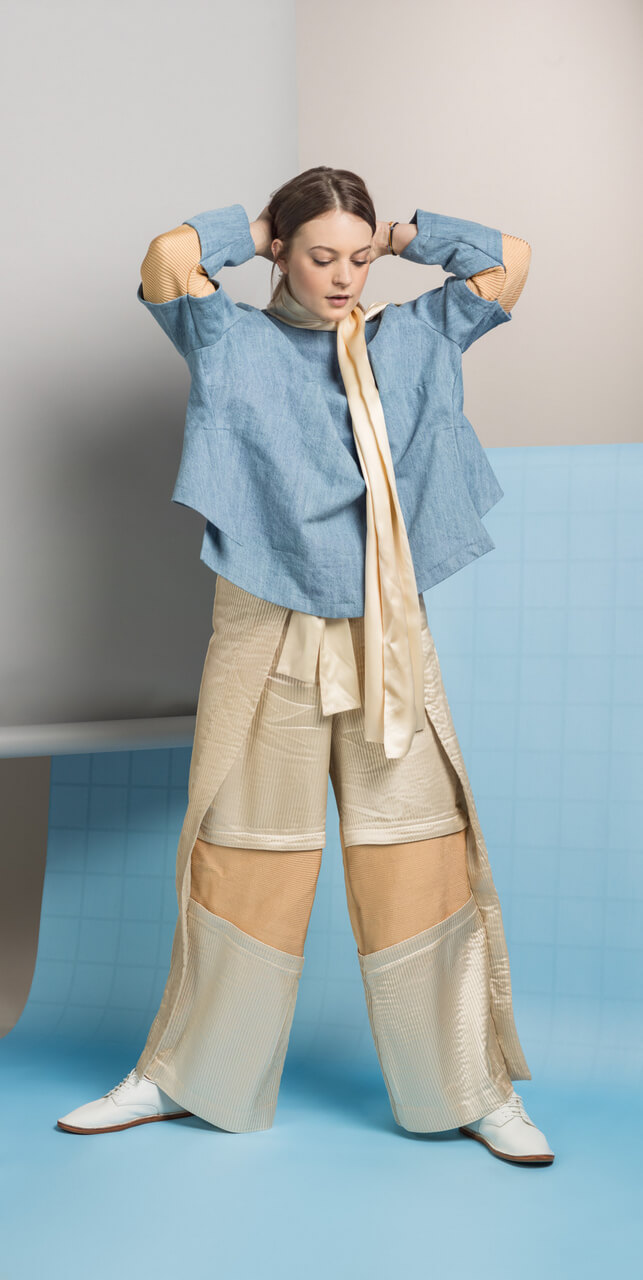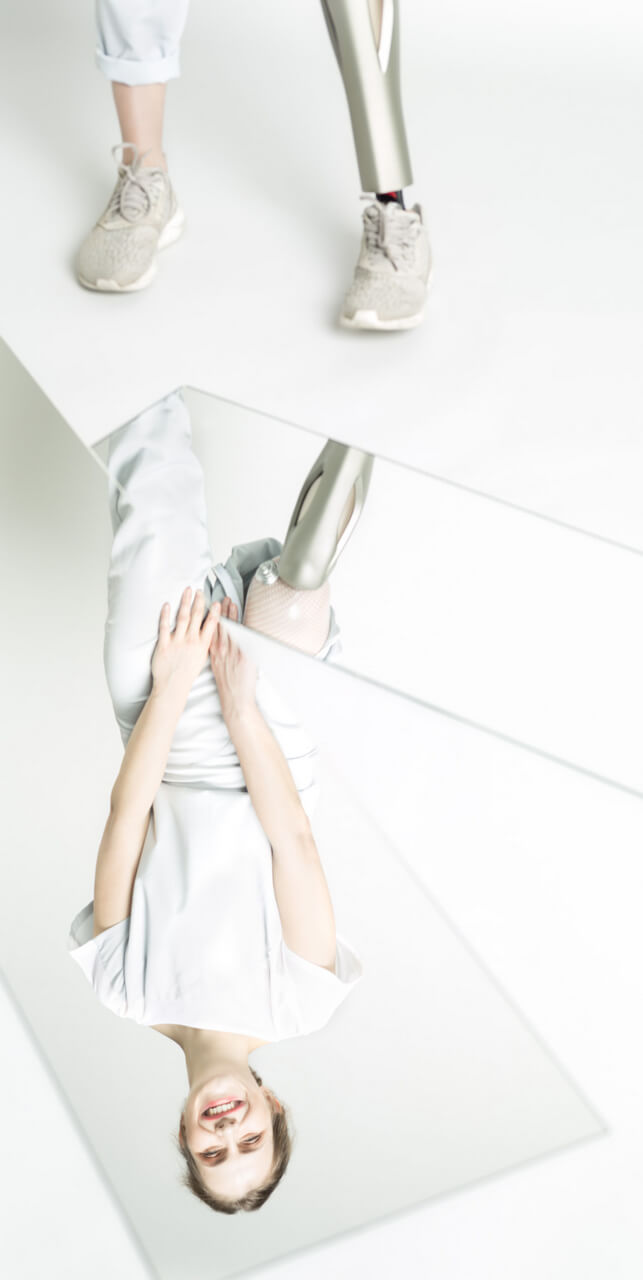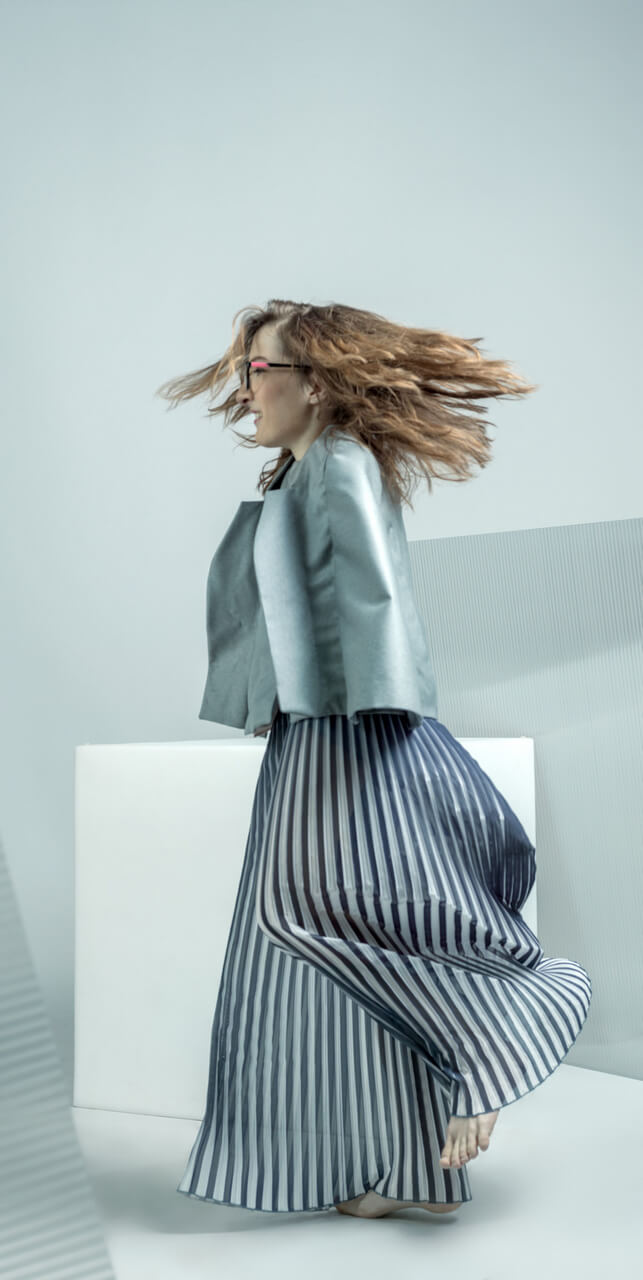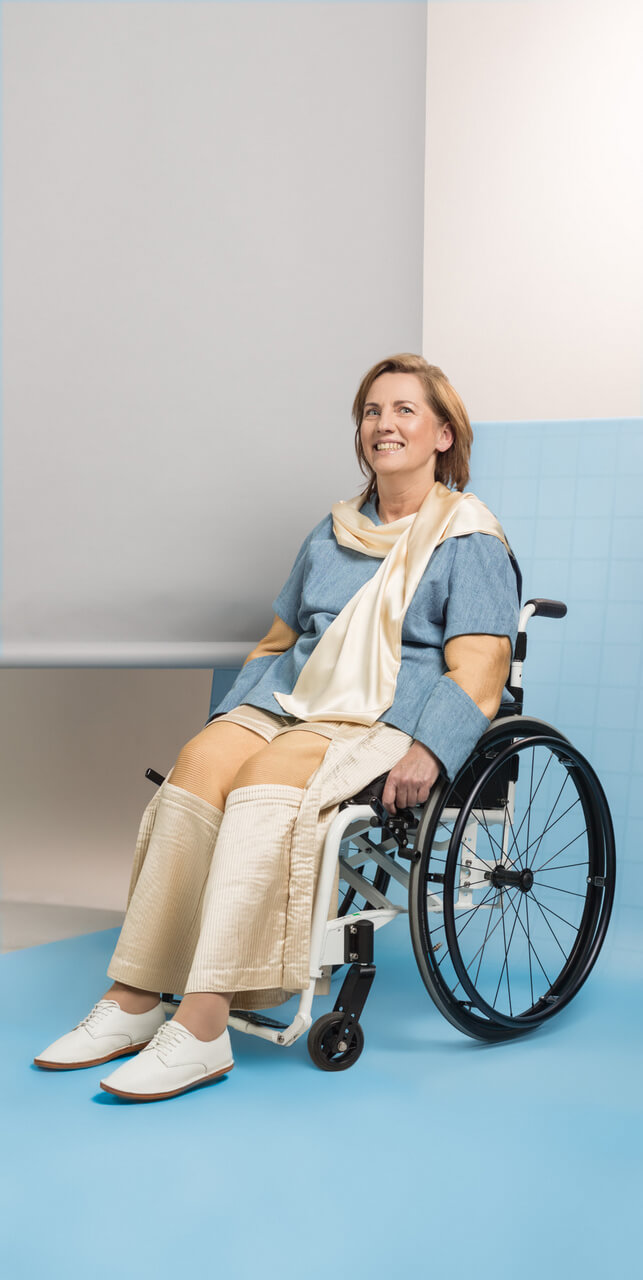About the exhibition
NORMCORE – Design for disability culture showcases clothes made for people living with disabilities. The works have been produced within the educational framework of Moholy-Nagy University of Art and Design. The incubator for the design and the documented process displayed at the exhibition has been the TransferLab, one of the research labs of the University, that considers the strengthening of social visibility and support for the disabled to be one of its primary aims.
We borrowed the term Normcore from contemporary fashion theory, which describes the toolkit for an excessively simple, and extremely “normal” way of dressing. This concept is a perfect point of departure for examining what questions are worth asking about our relationship with normality. Does a normal body exist? What is normal? What is our responsibility in the formation of these concepts in society? Fashion design undoubtedly has an immense role and communicative potential in shaping this dialogue.
The idealistic, healthy body prototype is only a social construct, which deems disability a quality other than normal. Disability, however, is not an illness, but a condition, mostly due to the violation of the right to participate in social roles. We experience disability when we face a temporary or an elderly physical state and are deprived from the benefits that members of society are entitled to. These situations are often caused by the constructed environment, thus are the consequences of human decisions. Among many, one of these responsible decisions is fashion design.
The exhibition displays designs which have been created for and in active collaboration with the affected. While the clothes fitted for women living with a limb deficiency or for a wheelchair user are completely functional and wearable pieces, they are at the same time carriers of social constructs, which prompt our prejudices regarding disability to be re-evaluated. The exhibited fashion photographs portraying affected models, aim to show what happens when fashion design meets real needs, and communicates with meaningful gestures about the person wearing the piece of clothing. The photos are accompanied by sketches, video interviews, statements from the creators in order to give a well-rounded picture about the design process.
Normcore
The way we dress is a constant reflection of what we deem important to say about ourselves. Occasionally, however, we wish to step out of this field of created constructs and wear clothes that do not carry any additional meaning. Clothes that are devoid of extra layers of meaning and emphasise pure practicality. In contemporary fashion, this trend is labelled normcore (combining the words normal and hardcore) and refers to the excessively “normal” set of clothing.
List of participants
FASHION DESIGNERS
Györök Borbála, Nagy Adrienna
Lévai Zsófia, Zepkó Ferenc
Pázmány Lili
Török Anna, Vass Csenge
PHOTOGRAPHERS
Andristyák Marcell
Bán András
Kovács Kristóf
Liter Zsófia
Makláry Máté
MODELS
Enyingi Sára Borbála
Ivicsics Borbála
Lukoviczki Réka
Pázmány Gabriella
Szabados Luca
MAKEUP ARTIST
Keserű Barbara
HAIR STYLISTS
Kintli Gábor
Kovács Temudzsin Alex (Hairmate)
TUTORS
Dobi Dóra
Fazakas Péter
Harmati Hedvig
Merényi Zita
Szirtes János
Vargha Balázs
Veres Bálint
GRAPHIC DESIGNERS
Almássy Dániel Domán
Cséfalvay Fanny
Lajos Diána
Róth Barnabás
Vágvölgyi Noémi Anna
VIDEOGRAPHERS
Csige Márta
Liter Zsófia
Zászlós Mariann
WEB
Róth Barnabás
ART DIRECTOR
Vágvölgyi Noémi Anna
CURATORS
Dobi Dóra
Mihály Kamilla
Veres Bálint
MANAGEMENT
Alscher Bettina
COMMUNICATION
MOME Brand Iroda
Labowsky kreatív kommunikációs ügynökség
SUPPORTERS
Allee Bevásárlóközpont
Hello Wood
Makerspace.hu digitális alkotóműhely
Moholy-Nagy Művészeti Egyetem
MOME TransferLab
Nemzeti Kulturális Alap
Ottobock
Tripont fotótechnikai szaküzlet
PARTNERS
Élő Könyvtár
Labowsky kreatív kommunikációs ügynökség

